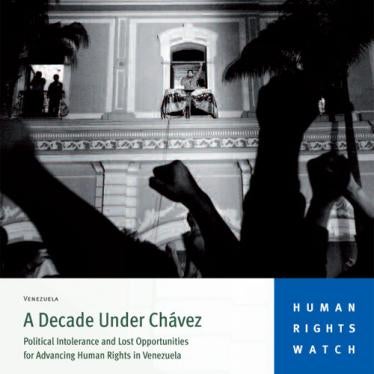(Washington, DC) – Venezuela should ensure that an investigation into two recent burglaries of the offices of the nongovernmental organization Espacio Público, a human rights group, is prompt, thorough, and impartial, Human Rights Watch said today.
On the nights of November 16 and 26, 2011, people who have not been identified broke into the offices of Espacio Público, stealing more than 10 computers and other valuable office equipment.The organization filed formal complaints with the police and offered video images recorded by security cameras that appear to show the faces of those responsible,butthe police has not notified Espacio Público's director regarding the status of the investigations.
“Venezuelan authorities should conduct a rigorous investigation to determine who carried out these burglaries and why,” said José Miguel Vivanco, Americas director at Human Rights Watch. “Failure to do so could send a dangerous message that the government condones attacks on human rights organizations.”
After each incident, representatives from Espacio Público presented a formal complaint to the investigative police (Cuerpo de Investigaciones Científicas, Penales y Criminalísticas, CICPC). On November 17, two CICPC investigators went to Espacio Público's offices to obtain testimony from the organization's staff and take pictures. However, the investigators did not take copies of the security camera’s footage offered by Espacio Publico staff, which appears to have captured the faces of those responsible. No one has gone to the offices of Espacio Público to investigate the second incident.
In a report on human rights defenders on the Americas, the Inter-American Commission on Human Rights stated that the “most effective way to protect human rights defenders in the hemisphere is by effectively investigating the acts of violence against them, and punishing the persons responsible.” The commission said that, “Impunity contributes to the increased number of attacks, threats, and other violations against human rights defenders... [and it] fosters the vulnerability of defenders since it gives rise to the perception that it is possible to violate human rights without being punished.”







